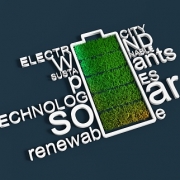Guide 101: Everything About Solar Battery Storage
Most Australian homeowners have already adopted clean-sourced energy – solar, as a way to save thousands on their utility bills and reduce individual CO2 footprint. Solar panels are commonly found upon the rooftops of Australian homes, and homeowners are getting used to living an off-grid life. The popularity of solar power in Australia is driving down prices, making the solar industry one of the fastest-growing and job opportunity producing sectors. Homeowners are now planning to upgrade their already installed solar system by adding solar battery storage.
Solar battery systems offer homeowners the advantage of storing excess energy produced by the PV panels and using it during evenings or blackouts. Such solar power storage units can power homes even after the sun goes down and protect the value of the energy-generating in-house. Solar batteries are the simplest way to make the best of solar power further.
What Is a Solar Battery?
A solar battery is an energy storage unit that stores power generated by solar PV panels. Homeowners can store their excess energy produced through solar batteries and use it when the sun goes down or during power cuts. Rather than sending the excess energy generated to the grid, you can consider using it for daily power consumption.
Having a solar battery can also help you save money on your utility bill by using power generated from the solar system rather than relying on the electricity grid. Such energy storage units allow you to take advantage of the time of use feed-in tariffs and save maximum power.
Households can export excess energy in peak demand periods to enjoy the benefit of a high feed-in tariff.
How Solar Battery Storage Stores Solar Energy?
Solar energy stored in solar batteries is typically used during the evening or during power cuts. Here’s how solar energy is stored in solar batteries:
- Solar PV panels absorb sunlight and generate electricity
- The direct current (DC) electricity produced flows through an inverter to generate alternating current (AC) electricity
- The AC electricity is used to power home appliances
- Excess electricity not used by home appliances charges solar batteries
- After sunlight hours, appliances use stored solar energy produced by the battery
Types of Solar Batteries
There are four common types of solar batteries:
1. Lithium-Ion Solar Battery
Lithium-ion batteries are a common and popular type of solar battery available in the market. Such battery types are durable and often last for ten years. However, they can degrade to about 60% storage capacity over time. Lithium-ion batteries are non-recyclable and harmful to the environment.
If you are looking for a battery option that can reduce the negative environmental impact and work optimally, choose our SonnenBatterie solution. Each SonnenBatterie solution is cobalt-free and has a 10-year warranty plan.
2. Flow Battery
As the name suggests, flow batteries use flowing electrolytes (bromide or zinc) to store energy and later release it for daily use. They can operate well in high temperatures, be discharged to 100%, and don’t lose capacity quickly.
However, flow batteries can be quite expensive compared to other batteries and have a shorter life than lithium-ion batteries. Another downside is they don’t operate well in the cold temperature.
3. Nickel-Iron
Nickel-Iron batteries are extremely durable, have a high energy density, and can be completely discharged. However, they can be expensive compared to other battery types, have a shorter lifespan, and are extremely slow to charge.
4. Lead Acid
If you are looking for an affordable battery option, opt for lead-acid batteries. They are relatively cheaper, and most recycling companies can recycle such batteries. The downside of lead-acid batteries is a shorter life span and low energy efficiency.
Want to know how we can help you save thousands on your utility bills and reduce your carbon footprint using solar power batteries? Call one of our solar experts on 07 5477 0610 today!

